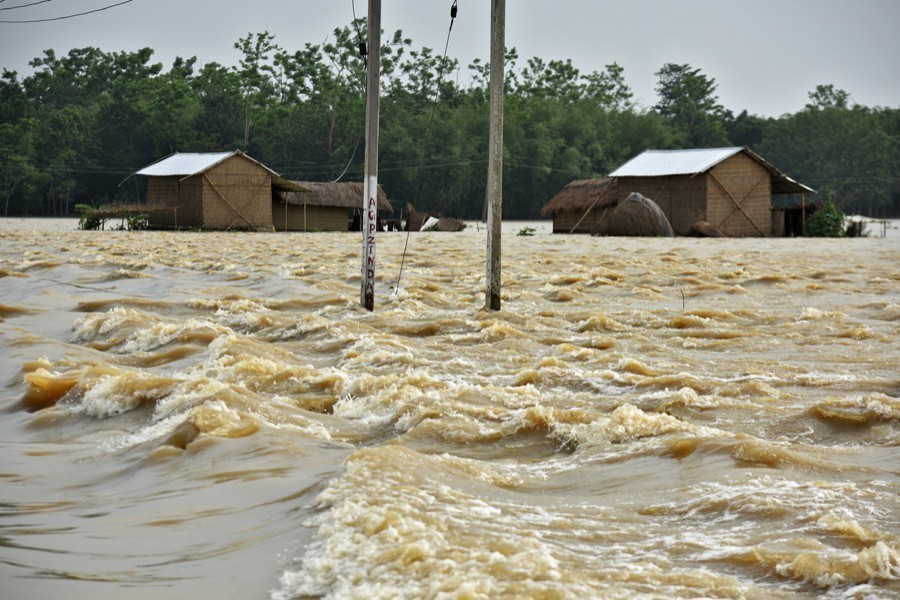
Published :
Updated :

The sufferings of millions of people in Sunamganj and Sylhet are beyond description. Cut off from the rest of the country by rail, road and air and with no electricity and drinking water, these people are now living in a nightmarish condition. The people living along the banks of the Surma and the Kushiara are not new to flash floods, caused by the sudden onrush of waters from the upstream and heavy rain. But what they are witnessing this time is unprecedented, in terms of ferocity and suddenness of the flood. State minister for disaster and relief Dr Md. Enamur Rahman has rightly described the latest floods in Sunamganj and Sylhet as the worst in 112 years. Locals also have corroborated the minister's statement.
Another flood, though not severe, as the current one visited this part of the country only a month back. That flood also had caused damage to standing crops, particularly in haor areas. This time, the extent of damage is extensive. Not just crops, but many more things will be on its casualty list. Houses, schools, roads, bridges and culverts have been damaged. In many places, onrushing flood waters have swept away homes and other structures. Most areas of the districts of Sunamganj and Sylhet are under knee-to-waist deep water. People are confined to their homes and all economic activities have come to a halt. In remote and distant areas, people are reportedly passing days without food and drinking water. In sum, the flood has given rise to a humanitarian crisis in the affected districts.
The government has deployed the army and navy personnel in the rescue of marooned people. With their limited capacity, they are trying hard and, so far, rescued nearly 100,000 people to safety. The government alone cannot handle such a huge crisis created by a major natural disaster. The government is expected to do its part in mitigating the suffering of flood-affected people. But others in society, particularly the affluent sections and political parties and non-governmental organisations, cannot shirk their duties and responsibilities in this moment of humanitarian crisis. They need to come out and extend their helping hands to the distressed.
The situation in Sylhet region might start improving within two to three days, according to the flood warning centre. But at least eight more districts are moderately flood-hit and a few others remain at risk. The government has opened flood shelters in the affected areas, but more need to be opened. Reaching these shelters, however, remains a problem for the marooned people. The flood-hit people also desperately need food, medicine and drinking water. When all sorts of transportation between the flood-hit districts and the rest of the country are restored, everybody needs to rush to help the distressed people. The government, on its part, should come up with a massive post-flood rehabilitation programme. Bangladeshis are known for their courage and ability to withstand the onslaught of natural calamities and restart life anew quickly. Hopefully, they would prove it again. That would be possible when the government and others try to mitigate their suffering.


 For all latest news, follow The Financial Express Google News channel.
For all latest news, follow The Financial Express Google News channel.